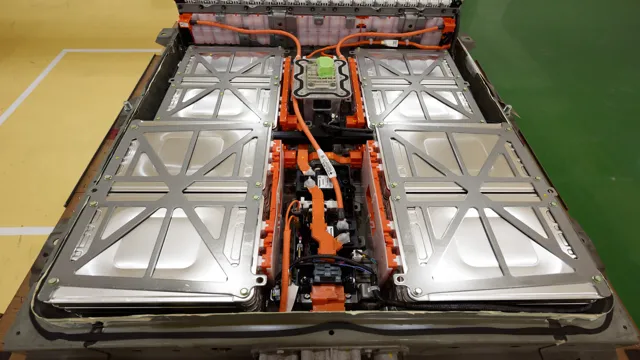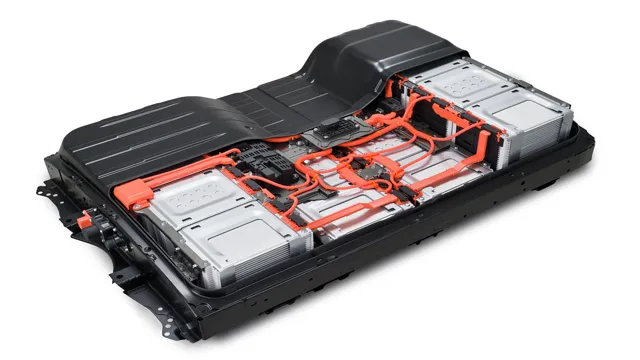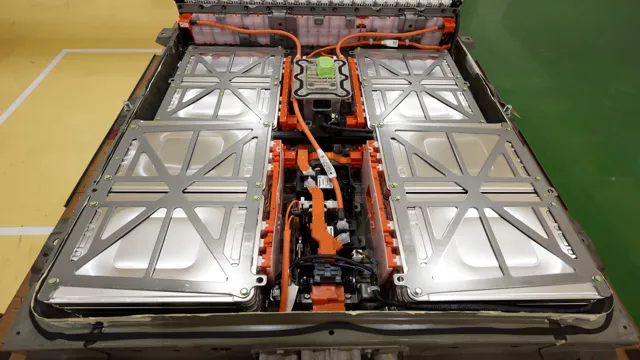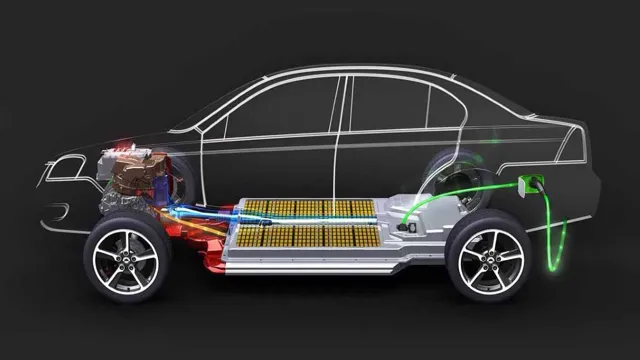Exploring the Shocking Truth Behind Electric Car Battery Problems: A Comprehensive Guide
As the electric vehicle market continues to grow, so do concerns related to the reliability and performance of electric car batteries. While it is true that electric vehicle batteries are more reliable than they were a few years ago, there are still concerns about their performance and the overall longevity of the batteries. Indeed, there are a few common electric car battery problems that you should be aware of if you are an electric vehicle owner or thinking about becoming one.
However, don’t let these issues deter you from making the switch to electric cars. With proper care and maintenance, you can ensure that your electric vehicle battery remains in optimal condition for many years to come.
Types of Electric Car Batteries
Electric car battery problem is a critical issue that many drivers face. With the growing popularity of electric vehicles, battery technology has become the focus of innovation in the industry. There are different types of batteries used in electric cars, including lithium-ion, nickel-metal hydride, and solid-state batteries.
Lithium-ion batteries are currently the most common type used in EVs due to their high energy density and long lifespan. However, they are also more expensive, and their manufacturing process is associated with environmental concerns. Nickel-metal hydride batteries are less expensive and more environmentally friendly, but they have lower energy density and shorter lifespan.
Solid-state batteries are the newest technology, offering higher energy density and faster charging times, but they are still in development and not widely used yet. As the industry continues to work on battery technology, it is likely that electric car battery problems will become less frequent in the future.
Lithium-Ion Battery Issues
When it comes to electric car batteries, there are a few different types to consider. One popular option is the lithium-ion battery, which is known for its lightweight design and high energy density. However, these batteries can also come with some issues.
For example, they may experience decreased performance in extremely hot or cold temperatures, and they can be prone to thermal runaway, which can cause a fire or explosion. Another downside is that these batteries can be quite expensive to replace if something goes wrong. Nonetheless, the benefits of lithium-ion batteries often outweigh the drawbacks, making them a popular choice among electric car manufacturers.

Lead-Acid Battery Issues
When it comes to electric car batteries, there are a variety of types to choose from. One of the most common types is the lead-acid battery, which has been used for over a century in vehicles of all kinds. However, lead-acid batteries come with their fair share of issues.
For one, they are quite heavy, which can negatively impact the weight and handling of an electric car. Additionally, they have a limited lifespan and can fail unexpectedly, leaving you with a dead battery and no way to power your vehicle. Finally, lead-acid batteries can be sensitive to temperature changes, which can lead to reduced performance in extreme hot or cold weather.
Despite these drawbacks, lead-acid batteries remain a popular choice due to their affordability and availability. However, as electric car technology continues to advance, more efficient and reliable battery options are likely to become increasingly common.
Symptoms of a Failing Battery
If you’re an electric car owner, you may have experienced problems with your battery. Identifying the symptoms of a failing battery is crucial to avoid getting stuck on the road or paying a hefty replacement fee. One common symptom is a significant drop in driving distance.
If you notice your car can’t go as far as it used to, it may indicate a battery problem. Another sign is the time it takes to charge the battery. If your car takes longer than usual to charge or doesn’t hold the charge for long, that’s a red flag.
Additionally, if you hear strange noises coming from your battery or your car’s performance decreases, it’s best to get your battery checked by a professional. Don’t let a failing battery ruin your driving experience. Keep an eye on these symptoms and address any issues before they become bigger problems.
Reduced Range
If you notice that your electric vehicle (EV) is no longer covering the same amount of distance on a single charge as it once did, this could indicate a failing battery and reduced range. Other symptoms that may indicate your battery is starting to wear out include slower acceleration, slower charging times, and a general decline in performance. It’s important to address these issues promptly to avoid being stranded on the road or having to constantly rely on a charging station.
If you suspect your battery is failing, it’s best to have it checked by a professional who can diagnose any issues and recommend the best course of action. Keep in mind that regular maintenance and charging habits can also impact battery life, so be sure to follow manufacturer recommendations and best practices for maximum longevity. By staying on top of battery health, you can help ensure your EV continues to provide reliable and efficient transportation.
Difficulty Charging
If you’re experiencing difficulty charging your phone, it could be a sign that your battery is failing. There are several symptoms of a failing battery that you should watch out for, including reduced battery life, unexpected shutdowns, and a swollen battery. A battery that’s nearing the end of its life will typically hold a charge for less time than it used to, even if you’re not using your phone as much as you used to.
You might also notice that your phone unexpectedly shuts down when the battery level is still high. This can be frustrating, especially if you’re using your phone for work or other important tasks. Another symptom of a failing battery is a swollen battery, which can cause your phone to feel hot and can even damage other components in the phone.
If you notice any of these symptoms, it’s best to get your battery checked out by a professional to ensure that you’re not putting yourself or your device at risk.
Warning Lights and Error Messages
Symptoms of a failing battery are not always easy to detect. However, warning lights and error messages on your vehicle’s dashboard can give you an early indication that something is not right. These signals include the battery light, which indicates that the battery’s charge is below the normal operating range, and the check engine light, which suggests there is a fault somewhere in the vehicle.
Other symptoms of a dying battery include difficulty starting the engine, dimming headlights, and electrical problems such as power windows or door locks that stop working. If you experience any of these symptoms, it’s best to get your battery checked by a professional mechanic to prevent getting stranded on the side of the road. Remember, your car battery is the heart of your vehicle’s electrical system, and a failing battery can cause damage to other critical components.
So, don’t ignore the warning signs and address them promptly to keep your car running smoothly.
Causes of Electric Car Battery Problems
Electric car battery problems can arise due to several reasons. One of the most common causes is extreme temperatures, which can affect the lithium-ion batteries used in these vehicles. When exposed to very high temperatures, electric car batteries can overheat and suffer permanent damage.
Similarly, very low temperatures can reduce the battery’s performance and capacity, leading to a shorter driving range. Another cause of electric car battery problems is poor maintenance. Neglecting to regularly check and maintain the battery’s health can lead to a decline in performance and even premature failure.
High mileage, frequent charging, and improper usage can also cause battery problems. Understanding and addressing these causes can help mitigate electric car battery issues and ensure optimal performance and longevity.
Extreme Temperatures
Electric car battery problems can arise due to a variety of reasons, one of which is extreme temperatures. When exposed to excessively high or low temperatures, lithium-ion batteries can experience significant damage, leading to reduced performance, shorter lifespan, and increased risk of failure. At high temperatures, the battery’s internal components can break down, causing a chemical reaction that releases more heat and exacerbates the issue.
Similarly, freezing temperatures can cause the electrolyte inside the battery to freeze, which can damage the battery’s structure and lead to reduced efficiency. To mitigate this issue, some electric car owners use battery thermal management systems that maintain the battery’s temperature within a narrow range. However, these systems can significantly increase the car’s cost.
As such, it’s important to be mindful of the temperatures your electric car is exposed to and take steps to keep it within a safe range.
Poor Maintenance
Electric car battery problems are often caused by poor maintenance. Neglecting routine maintenance can lead to a slew of issues, including a shorter battery lifespan and reduced performance. For example, failing to keep the battery charged can lead to sulfation, which is when sulfur from the battery acid builds up on the electrodes and reduces battery capacity.
Similarly, failing to keep the battery clean and dry can lead to corrosion, which can damage the battery’s internal components. That’s why it’s essential to make sure that the battery is regularly charged, kept clean and dry, and inspected for any damage. By taking these simple steps, you can effectively extend your electric car battery’s lifespan and performance, reducing the likelihood of experiencing any problems down the road.
So, proper maintenance is crucial to keep your electric vehicle’s battery running smoothly.
Tips for Maintaining Your Electric Car Battery
Having problems with an electric car battery is something that nobody wants to experience, as it means not only inconvenience, but also expensive repairs. To avoid such issues, it is essential to maintain your electric car battery properly. Firstly, make sure that you charge it regularly, but avoid overcharging it, as this can cause the battery to heat up and lead to permanent damage.
Additionally, keep the battery at a moderate temperature (around 20-25°C), as too hot or too cold temperatures can also negatively impact the battery’s lifespan. Another important factor is to avoid fast charging, as this can decrease the overall battery capacity over time. Lastly, be mindful of your driving habits and try to drive in a way that maximizes your battery’s energy efficiency, such as avoiding excessive acceleration or braking.
With these tips, you can help prevent any electric car battery problems and keep your vehicle running smoothly for years to come.
Conclusion
In conclusion, the electric car battery problem reminds us of one of Murphy’s laws – “if anything can go wrong, it will”. However, with the rapidly evolving technology and a push towards sustainability, we are optimistic that the industry will find innovative solutions to address this challenge. After all, as Benjamin Franklin once said, “out of adversity comes opportunity”.
Who knows, maybe the next breakthrough will be just around the corner. So instead of getting charged up over the battery problem, let’s power up our minds and work towards a greener future.
FAQs
What are the common electric car battery problems?
The common electric car battery problems include battery degradation, overheating, and short circuit.
How often do I need to replace an electric car battery?
The lifespan of an electric car battery varies, but on average, a battery can last between 8 to 10 years before needing a replacement.
Can an electric car battery be repaired?
Yes, an electric car battery can be repaired, but the repair process depends on the type of problem the battery is facing.
What are the maintenance tips for electric car batteries?
The maintenance tips for electric car batteries include avoiding extreme temperatures, keeping the battery charged, and following the manufacturer’s recommended maintenance schedule.
Are there any safety concerns with electric car batteries?
Yes, electric car batteries can be dangerous if not handled with care, as they contain high voltages. It is recommended to seek professional help for battery maintenance and repairs.




